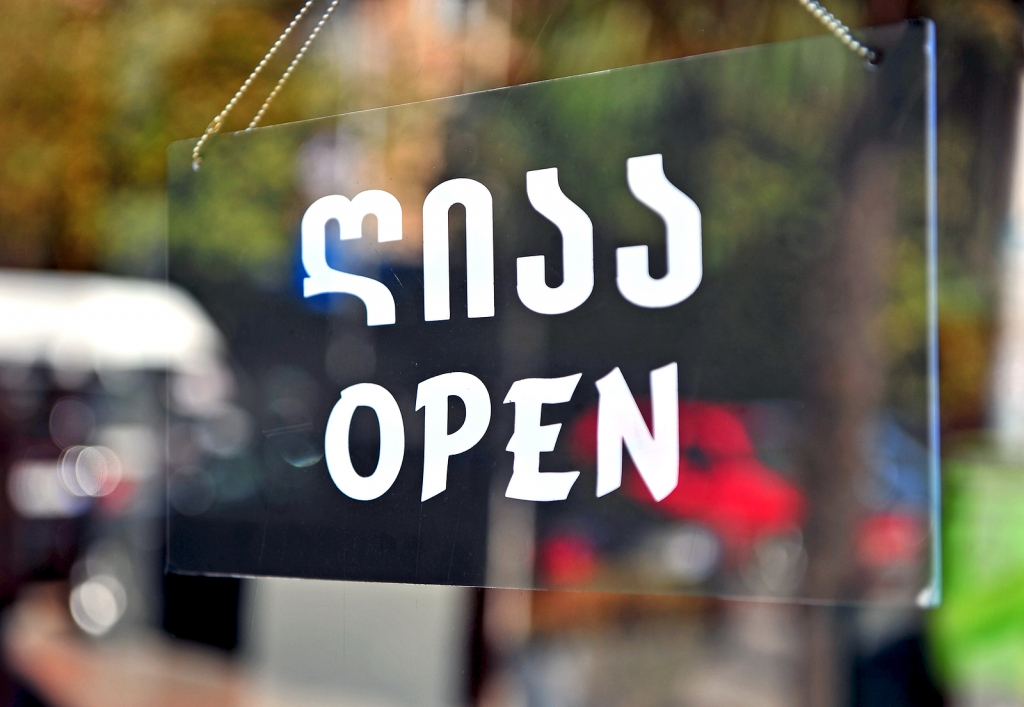We started the year with a bang, proclaiming Romania, then led by prime minister Viorica Dancila, unready to take on the presidency of the Council of the European Union.
It earned us the opprobrium of the country’s ruling Social Democratic party (PSD), who demanded we publish a right to reply. We politely refused, instead asking for the party’s then leader Liviu Dragnea to write a piece for us, explaining exactly where we had erred.
We never heard from the PSD again. By the end of the year the party had been kicked out of office, and Dragnea sentenced to three years and six months in prison. Dancila was humiliated in the second round of the country’s presidential election. The PSD now looks set to be confined to the margins of Romanian politics, where most Romanians believe it belongs.
In neighbouring Ukraine a former comedian, Volodymyr Zelensky, was elected president. Having spent much of his professional career starring in a television series in which he plays the role of a political outsider who accidentally becomes president, Mr Zelensky suddenly found himself playing the role for real.
He has so far done so with mixed results, concluding a much-needed new stand-by deal with International Monetary Fund (IMF) and overseeing an agreement with Russia that will see Ukraine continue to serve as a transit country for Russian gas for a further five years. This despite the near-completion of Russia’s highly controversial Nord Stream 2 pipeline in the Baltic Sea, which is set to be finalised at some stage in 2020.
However, Mr Zelensky has become a central figure in the impeachment process against Donald Trump in the United States, following a phone call between the two leaders in which Mr Trump allegedly asked his Ukrainian counterpart to launch an investigation into a Ukrainian company with links to a possible rival in next year’s US presidential election, Joe Biden.
Mr Zelensky has also so far failed to bring the war in the east of Ukraine to an end: a key campaign promise, although he did oversee a prisoner swap at the end of the year. Economic growth picked up to 4.2 per cent in the third quarter of 2019, and with macroeconomic confidence high, Ukrainians will expect to see a rise in living standards. With the Ukrainian parliament now dominated by his allies following a snap election during the summer, Zelensky will have little excuse for not delivering.
Sandwiched between Ukraine and Romania, tiny Moldova – Europe’s poorest country – had a surreal 2019.
In June, an unlikely coalition of pro-European and pro-Russian parties formed a government and succeeded in forcing the powerful, corrupt oligarch Vladimir Plahotniuc, into exile. By year’s end however the government had collapsed, leaving the country facing an uncertain 2020.
A similarly uncertain future hangs over Kosovo, where three months on from a general election the largest parties have yet to agree on the formation of a new government, leaving the incumbent, Ramush Haradinaj, whose summons by the war crimes prosecutor in the Hague for questioning over alleged crimes committed during and after the 1998-99 Kosovo War sparked the snap election, as acting prime minister until a new appointment is made.
Kosovo’s already poor relationship with Serbia soured even further during 2019, and the two countries appear to be further than ever from an agreement on the issue of Kosovan independence. This despite Serbia’s president, Aleksandar Vučić, telling the country’s parliament in no uncertain terms that it needs to accept that it has “lost control over Kosovo”, and that it must seek a compromise to normalise ties with its former province.
The Former Yugoslav Republic of Macedonia officially became the Republic of North Macedonia in February, after finally resolving an almost three-decade dispute with Greece over the use of the term Macedonia.
The country was rewarded almost immediately with the signing of an accession agreement with NATO, and the country’s prime minister Zoran Zaev was given an Emerging Europe Outstanding Achievement Award for his role in ending the dispute. Bulgaria’s Kristalina Georgieva, the former CEO of the World Bank who later in the year would be named managing director of the IMF, was also given an outstanding achievement award.
North Macedonia – and Albania – suffered a setback however when French objections led to the European Union failing to give the green light for the two countries to begin accession talks. Croatia, which assumes the EU’s rotating presidency on January 1, has said that it will use its presidency to campaign on behalf of the two countries. Unless French president Emmanuel Macron drops his veto, however, they will continue to be left out in the cold.
Both North Macedonia and Albania were amongst the several states in the Western Balkans who in December tentatively agreed to form a passport and duty-free zone, dubbed a ‘mini-Schengen’. The group also includes Serbia and Montenegro, but not Kosovo, which has so far steadfastly refused to take part in negotiations, fueling a row with erstwhile ally Albania.
In the Baltics, Estonia’s hitherto angelic reputation as the most progressive country in emerging Europe took a hit when a government including the far-right EKRE party took office in May. The party’s father-and-son leaders, Mart and Martin Helme, took the key posts of interior and finance minister respectively and celebrated by flashing a white-power symbol at their swearing-in ceremony.
The country’s president, Kersti Kaljulaid, as well as the prime minister, Jüri Ratas, were even forced to apologise on December 16 after Mart Helme called the new prime minister of neighbouring Finland, Sanna Marin, “a sales girl.”
Nevertheless, the country was once again ranked as the highest performing country in emerging Europe when it comes to freedom, according to the latest Human Freedom Index (HFI). The capital Tallinn was also rated as the best city in emerging Europe for entrepreneurs in a report published by Movinga, a provider of relocation services.

In other key rankings, Slovenia scored the highest among the countries of emerging Europe in the latest edition of the Social Progress Index, an annual socio-economic ranking compiled by the Social Progress Imperative, while Georgia remained the easiest place in the region to do business, according to the World Bank’s Doing Business report.
When it comes to ease of starting a business, Georgia is second only to New Zealand, the global leader. In a special report we asked investors if the hype surrounding Georgia should be believed. By and large, the answer was a resounding yes.
Elsewhere in the emerging Europe region, Lithuania (11th), North Macedonia (17th), Estonia (18th) and Latvia (19th) also made the global top 20 of the Doing Business report. Azerbaijan (34th) and Kosovo (57th) were among the top 20 most improved economies worldwide. Armenia has also implemented key reforms improving the business regulatory framework and took 47th place overall.
Invest Lithuania was named as emerging Europe’s leading investment promotion agency for the second year running at the Emerging Europe Awards, with the Polish capital Warsaw taking the title of the region’s most business-friendly city.
Georgia’s booming tourist industry was hit by a ban on Russian airlines flying to and from the country, which was introduced by Russian President Vladimir Putin in July. The ban followed protests in the Georgian capital Tbilisi against the continued occupation of the Abkhazia and South Ossetia regions by Russian troops.
In Poland, the liberal mayor of the northern city of Gdańsk Paweł Adamowicz was killed in a brutal stabbing attack on the evening of January 13. Mr Adamowicz was speaking in front of thousands of people at a charity event when the attacker stormed the stage and stabbed the mayor, who had led the city since 1998.
The country’s ruling Law and Justice party won a general election in November, but lost control of the Senate, which will make it more difficult for the government to pass controversial changes to its legal system which have been the source of increasingly fierce clashes with the European Union. The party appears, however, to be committed to reforming the European Union from within, and fears of a possible Polexit have been overplayed: Poland will not be leaving the EU.
Likewise Hungary, whose increasingly autocratic prime minister Viktor Orbán also remains a thorn in the side of the EU. Mr Orbán suffered a rare electoral setback however in local elections in October, with opposition candidate Gergely Karácsony becoming mayor of the country’s capital Budapest.
Elsewhere amongst the Visegrád Group of countries, Slovakian voters elected anti-corruption activist and environmental campaigner Zuzana Čaputová as the country’s first female president, stemming the tide of populism in the region, while in the Czech Republic prime minister Andrej Babiš came under increasing pressure to resign following charges of corruption.
Belarus continued to negotiate a new treaty with Russia that could eventually see the country all but absorbed by its larger neighbour, while at the same time continuing to pivot towards China: in December the Ministry of Finance of Belarus and the Shanghai Office of the China Development Bank signed an agreement to provide Belarus with a loan worth close to 500 million US dollars.
Polish author Olga Tokarczuk won the Nobel Prize for Literature in October, rewarded for “a narrative imagination that with encyclopedic passion represents the crossing of boundaries as a form of life”.
Tokarczuk’s first book was published in 1989, a collection of poems entitled Miasta w lustrach (Cities in Mirrors). Her debut novel, Podróż ludzi księgi (The Journey of the Book-People), a parable on two lovers’ quest for the “secret of the Book” (a metaphor for the meaning of life) set in 17th century France, was published in 1993.
In 2018 she became the first Polish writer to win the Man Booker International Prize for Flights, originally published in Polish in 2004 as Bieguni, a mix of essay and fiction, the major theme of which is modern day nomads.
Later in October the Albanian writer Ismail Kadare was named the 26th laureate of the renowned Neustadt International Prize for Literature.

Six films from emerging Europe which have been making waves at festivals for much of 2019 have been shortlisted for the 92nd Oscar Awards ceremony, set to take place in Los Angeles on February 20, 2020.
Tamara Kotevska and Ljubomir Stefanov’s film Honeyland from North Macedonia, The Physics of Sorrow by Bulgarian-born Canadian filmmaker Theodore Ushev, Painted Bird from Czech Republic, Those Who Remained from Hungary, Estonian director Tanel Toom’s Truth and Justice and Polish thriller Corpus Christi are the six films which have been shortlisted as potential Oscar nominees.
Finally, in the year that much of emerging Europe has been celebrating 30 years since the fall of the Iron Curtain, we suggested that the time had come for the region to ditch communism for good and begin its search for new narratives.
It’s clear that finding a way to break free of the communist past – and the negative preconceptions it entails – remains one of the key challenges facing emerging Europe as the region looks to move up the value chain and change perceptions about what it can offer visitors, investors and – perhaps most importantly – its own people. But find a way we must. Let’s make 2020 the year we do so.
